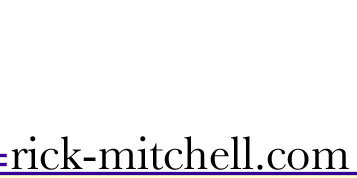Tax Officials' Use of Stolen Bank Data
Seen as Unlikely to End Despite Court Ruling
By Rick Mitchell
PARIS--A recent French high court ruling that voided three tax raids that were based on information stolen from HSBC bank files is unlikely to prevent tax authorities from continuing to pursue people named in the files, a tax practitioner told Bloomberg BNA Feb. 3.
In the decision posted Feb. 2, France's highest court, the Cour de Cassation, ruled that the country's national directorate for tax investigations should not have used information from files stolen in 2009 from the Swiss arm of multinational bank HSBC as justification for on-site searches for tax fraud and tax evasion evidence ( General Public Finances Director v. Monsieur X, Cass. Comm., docket number not available, released 2/2/12).
Nicolas Jacquot, a Paris-based partner at Arsene Taxand, said that despite the ruling, tax authorities are still likely to use names and account numbers in the HSBC files to, among other things, request evidence from Swiss tax authorities under the tax information exchange agreement the two countries signed in 2009.
“The principal message from this case is that the administration has to have very solid evidence to conduct an audit. But the fact is the [French] authorities have the files [with about 3,000 names] and they are probably going to use them,” Jacquot said.
Court Authorization Obtained
According to the text of the ruling, tax inspectors in 2010 obtained prior authorization, from a so-called custody and release judge of the First Instance court, to search the premises of two companies and a safe owned by HSBC in Paris for evidence of tax fraud by Monsieur X, under article L. 16 B of the Tax Procedures Code.
Among its justifying evidence, the tax directorate adduced identifying information taken from the stolen HSBC files. Inspectors carried out the searches in June 2010.
After Monsieur X challenged the authorizations by the custody and release judge, the Paris Court of Appeals in 2011 voided them.
According to the Court of Cassation ruling, the tax authority argued the authorizations should be affirmed because the information adduced was legitimate at the time of the court case, because it had been legitimately transmitted to tax authorities by the national procurer in Nice.
But the Court of Cassation disagreed. “The information was stolen so the [lower court] was correct in voiding the authorizations … It matters little that the authorities received the information from the national procurer.”
Files Still Useful
Jacquot said the court's decision is likely to force the tax authority to rethink investigations it has based on evidence from HSBC files.
However, it does not mean the files are useless, he said. He noted that the government has already used its possession of the HSBC data to spur people with hidden foreign assets to voluntarily come forward to declare the accounts.
“Although the court prohibited the authority from using the [HSBC] list to justify searches, it still has the means to legalize the information it has,” he said.
In particular, the authorities can use the names and other information in the files as the basis for requests for information from Swiss authorities, which theoretically they would have to give, under the terms of their updated bilateral agreement.
“It's a little complicated, but that doesn't mean there's nothing that [French authorities] can do. That's clear,” Jacquot said.
Case Led to Dispute With Switzerland
In late 2009, HSBC Private Bank (Suisse) SA, based in Geneva, reported that a former French employee from its information technology development group stole data from the bank between the end of 2006 and early 2007.
A prosecutor in French city of Aix-en-Provence ordered data stolen from HSBC to be returned to the bank after a request from the Swiss government. However, then-Minister of Budget Eric Woerth said the data would still be used for tax investigations.
This set off a dispute with Switzerland that threatened to derail the update to the bilateral double tax treaty between the countries, until the dispute was resolved in early 2010.
In 2011, the Swiss financial regulator reprimanded HSBC for lax internal controls that allowed the data theft.
The Nice-based French national procurer became involved in the case when Swiss authorities requested assistance, because the ex-HSBC employee, Herve Falciani, lived in Nice.
The Nice procurer seized the files from Falciani and later transmitted them to tax authorities in Paris.
Meanwhile, French tax officials have claimed at various times to have identified between 3,000 and 8,231 French account holders in the stolen files, and said they planned investigations for tax evasion and money laundering.
(Appeared Feb. 12, 2012)

